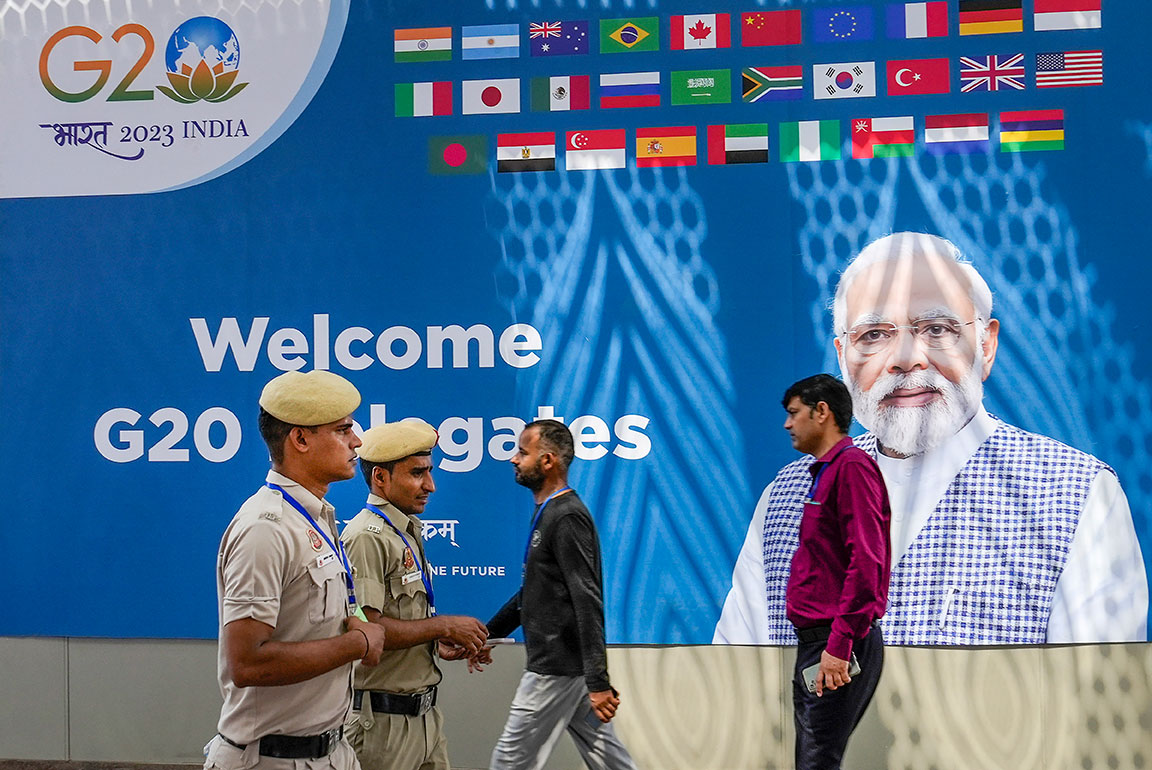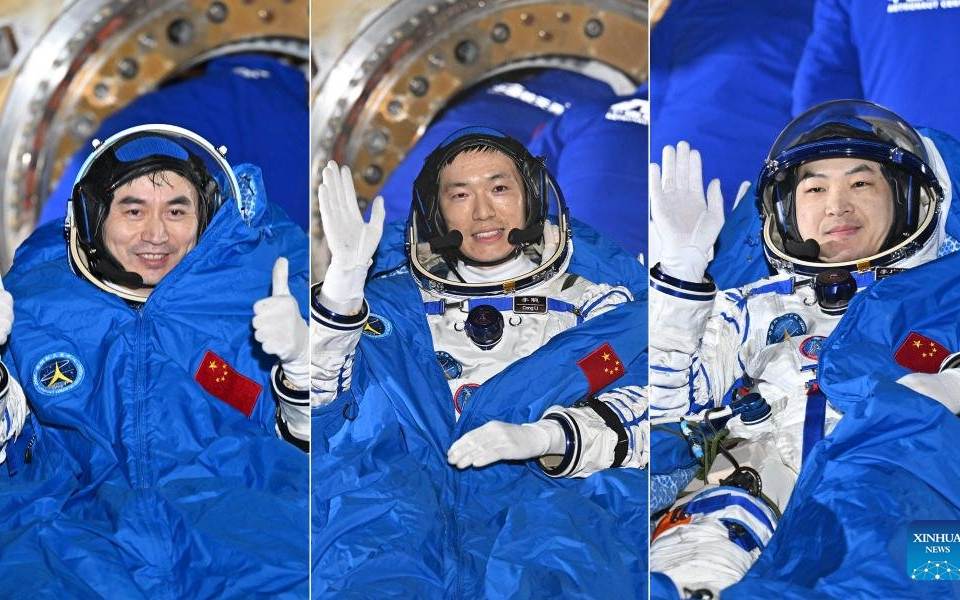New Delhi(PTI): From 'Bienvenue' in French to 'Hosgeldiniz' in Turkish, G20 delegates and other international guests will be greeted in multiple languages when they enter the delegation centre at the Summit venue here.
In a spirit of 'Vasudhaiva Kutumbakam', 'welcome' has been printed in languages of all G20 member nations and invited countries, on an official welcome backdrop installed in the Delegation Offices set up at Hall no. 14 of the Bharat Mandapam complex.
From 'Willkomen' in German to 'Selamat Datang' in Indonesian and 'Bienvenido' in Spanish to Hosgeldiniz' in Turkish, the backdrop wears a colourful look.
In a late Thursday night post on 'X', G20 India shared glimpses of the 'RBI Innovation Hub Pavillion', 'Digital India Experience Zone' and other facilities which have been created for delegates and others, in a video of the Bharat Mandapam.
In the short video, G20 Chief Coordinator Harsh Vardhan Shringla also gave a sneak peek into dedicated office spaces which have been built for delegates of all G20 members nations and invited countries, besides a common spacious lounge area.
The welcome backdrop was also shown in the video.
From greetings in Bangla to German and Russian to Mandarin, the massive backdrop fronted by flags of all G20 members and invited countries and international organisations, paints a picture of 'Vasudhaiva Kutumbakam' - One Earth. One Family. One Future. -- the theme of India's presidency of the G20.
The languages of all G20 member nations and invited countries have been included on the welcome backdrop, Shringla says in the video.
A large number of media delegates have already arrived in Delhi for the G20 Summit and a press conference was held on Friday at the International Media Centre set up in Hall no 3 of the complex.
The G20 Summit will take place at the newly-built international exhibition and convention centre -- Bharat Mandapam -- at Pragati Maidan.
Let the Truth be known. If you read VB and like VB, please be a VB Supporter and Help us deliver the Truth to one and all.
Beijing, Nov 4: Three Chinese astronauts who spent six months developing China’s low orbit space station returned to Earth safely early Monday, the China Manned Space Agency (CMSA) said.
The capsule of the spaceship Shenzhou-18' carrying astronauts Ye Guangfu, Li Cong and Li Guangsu, touched down at the Dongfeng landing site in north China's Inner Mongolia Autonomous Region at 1:24 am (Beijing Time).
The three astronauts, after staying in orbit for 192 days, were all in good health and the Shenzhou-18 manned mission was a success, the CMSA said.
Ye, the Shenzhou-18 mission commander, has become the first Chinese astronaut with an accumulative spaceflight time of more than a year, setting a new record for the longest duration of stay in orbit by a Chinese astronaut.
He served as a crew member in the Shenzhou-13 mission from October 2021 to April 2022.
"Chinese astronauts have flown to space in successive missions. I believe that the record of the duration in orbit will be broken in the near future," Ye said.
Another astronaut Li Guangsu said that they grew two types of plants -- cherry tomatoes and lettuce -- and they had harvested some lettuce leaves for food.
"Being able to eat fresh vegetables in space is truly a blessing. These green plants have also brought a touch of green and good cheer to our busy work," Li was quoted by state-run Xinhua news agency.
China launched the Shenzhou-18 manned spaceship in April this year.
During the mission, the Shenzhou-18 crew utilised the scientific experiment cabinets and extravehicular payloads to carry out dozens of experiments in the fields of basic physics in microgravity, space material science, space life science, space medicine and space technology, Xinhua report said.
The three were relieved by another set of three Chinese astronauts, including a woman who docked with the orbiting space station on October 30.
China changes crew for the station every six months.
China built its space station after it was reportedly excluded from the International Space Station (ISS) over concerns that China's space programme is manned by its military, the People's Liberation Army, (PLA).
The two robotic arms of the station, especially the long one which has the ability to grab objects including satellites from space, drew international concerns.
Early this month China announced its plans for the further development of space programmes which included launching a manned lunar mission, construction of a lunar space station, exploration of habitable planets and extra-terrestrial life to expand its space programme in the next few decades.





